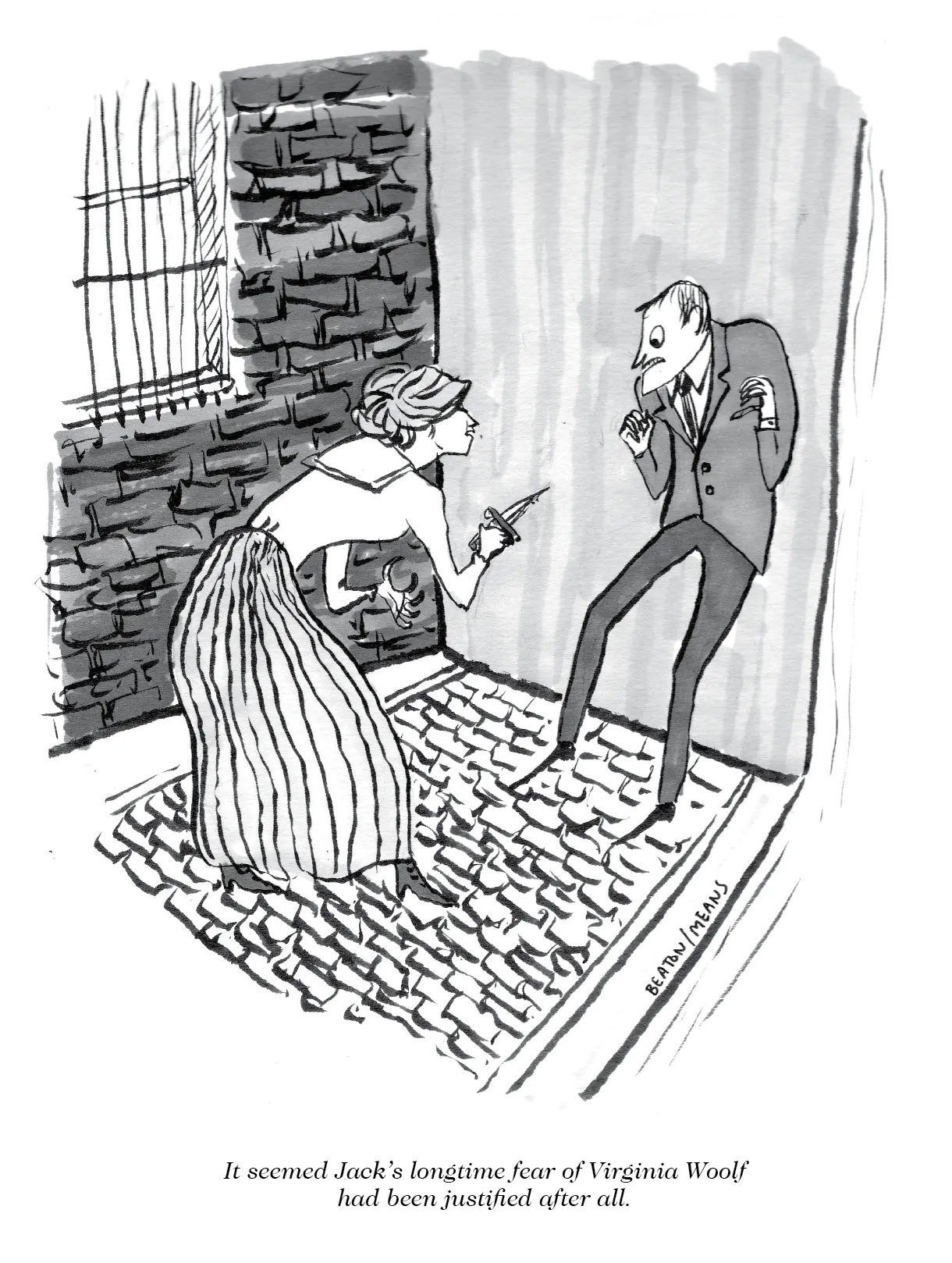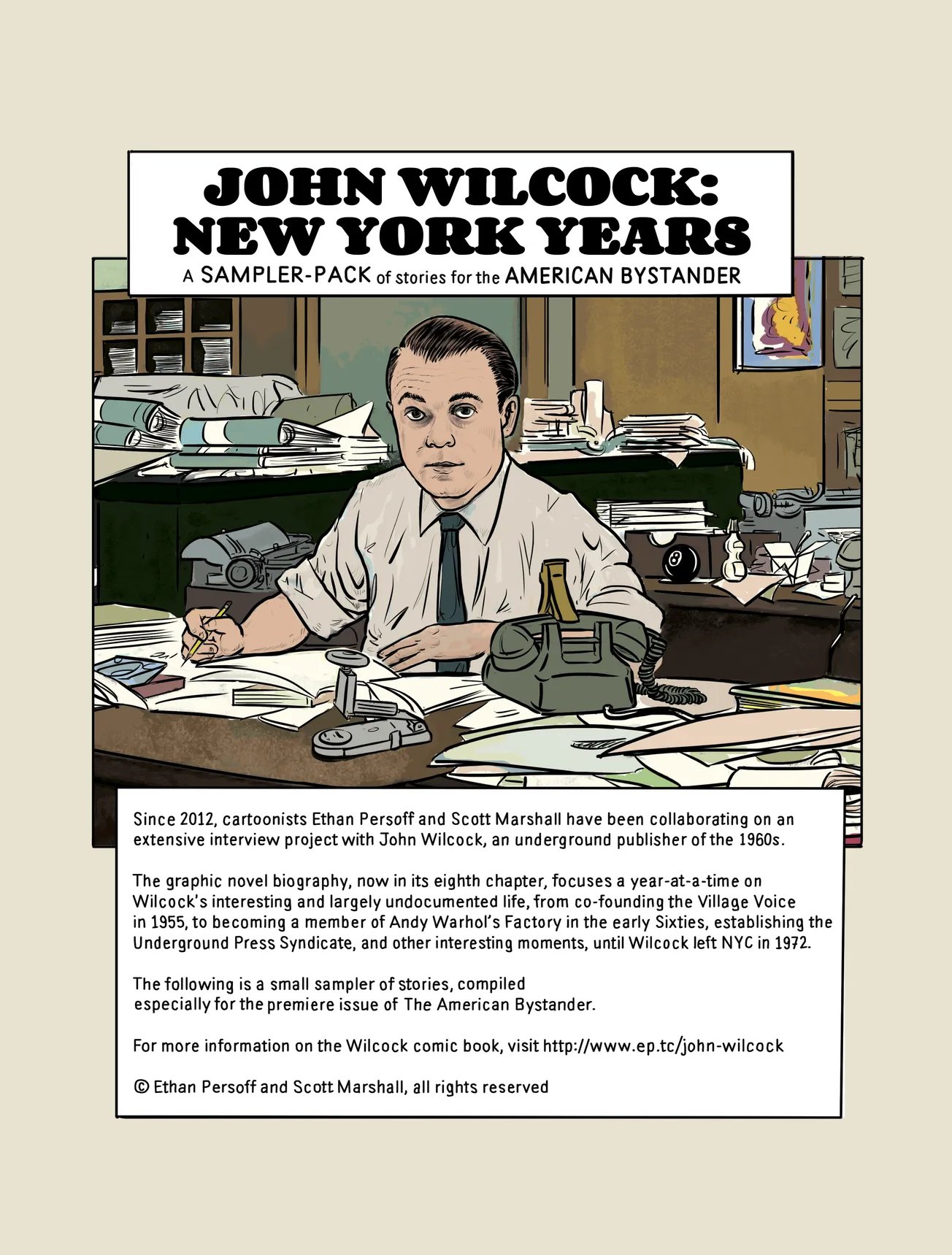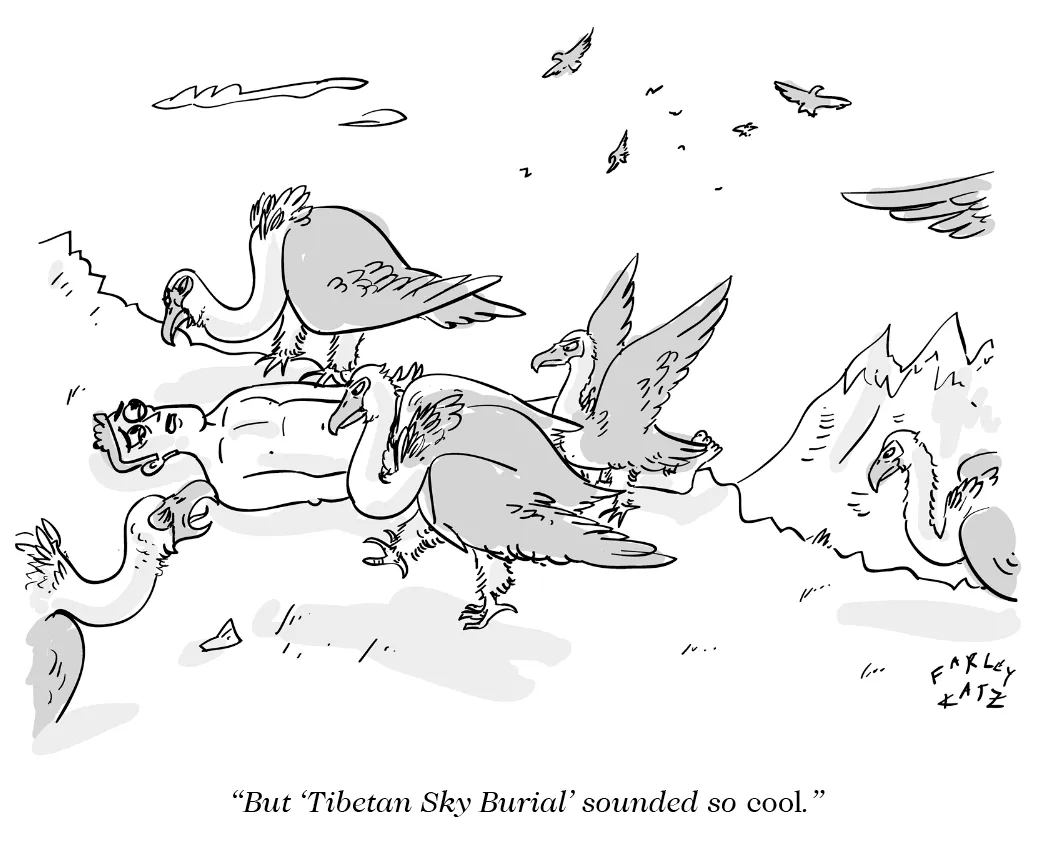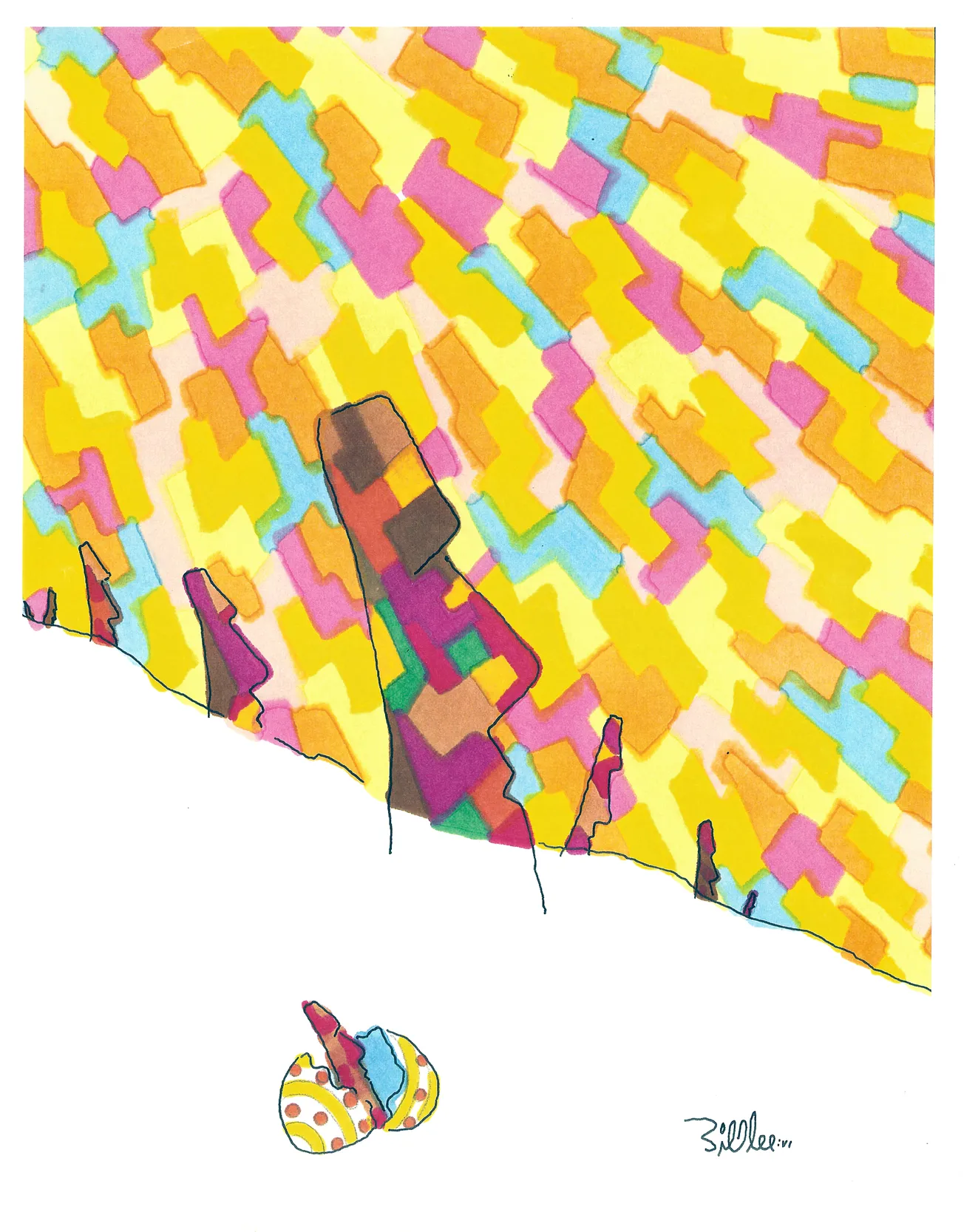“Janitorgod covers my 40s,” Dennis Perrin wrote, “when my wife, kids and I moved to Ann Arbor after going into tax debt in NYC. This was a year after Mr. Mike came out, but I couldn’t find any writing/editing jobs, so I went back to blue collar work. And there I remained for the better part of a decade… When people say to me, ‘Oh, Ann Arbor! That’s such a cool, fun town!’ I usually shoot back, ‘Not when you have to clean it.’”
Cleaning companies have regular turnover, which makes sense. Shit job. There’s always an opening.
I apply at Patriot Clean. Their ad is direct, as if standing at attention. Their offices are just outside of Ann Arbor. Downstairs, rows of folding chairs in front of what resembles a pulpit. Upstairs, smaller offices and a large classroom. On the walls, placards read U.S. OUT OF THE U.N. and JOE MCCARTHY WAS RIGHT. A magazine cover warns of Chinese drug dealers from Mexico.
These cats are serious. They’re the cleaning wing of the John Birch Society. The John Birch Society.
One owner, Bill, thick gray beard, short gray hair, gives me an application to fill out. He wears a large anti-abortion button on a plaid shirt; a fetus in a garbage can. Is Planned Parenthood one of their clients?
Bill is friendly. He smiles, ushers me in to see his co-owner, Jim, who sits rigidly. He looks 20 years younger than Bill, clean cut, all-American stereotype. His movements are deliberate and staged. Jim crisply asks me questions. He doesn’t smile, doesn’t probe my political views. He’s more concerned with my stamina.
“How’s your back?” Jim asks.
“My back? It still seems to work.”
“Good, because the back’s the first thing to go.”
Looking at Patriot’s offices, you’d think it’s the mind.
He likes that I don’t fit the cleaner image. He says it will help calm clients made nervous by darker people in their work space, at night, with keys and alarm codes. All of this should alarm me, but I need the job and, I’ll confess, I’m intrigued. Jim offers and I accept. I start the next night.
• • •
The Birchers show me their chemical warehouse, a small space crammed with ammonia, bleach, acid, and other agents doubtless banned by the Geneva Convention. Bircher Jim quietly explains what each chemical does, how it should be used, and how to water it down to save money. Bircher Bill nods along, saying “That’s right,” as if in church.
The Birchers are seriously stocked. They’ll be able to clean well into the End Times; and given their connection to God, they may dominate the post-apocalyptic cleaning market as well.
Occasionally, Bircher Bill shows up while I’m working. He offers tips I don’t need, but he’s so damn nice that I play along.
Bill attempts to modify my toilet cleaning technique. There aren’t that many ways to clean a toilet, but Bill believes he’s found an inside track.
“Instead of swirling the Johnny mop in the basin, use short, hard strokes. That breaks up the dried fecal matter. Also, when you’re finished, leave the seat down.”
“I prefer leaving the seat up,” I reply with strange confidence. “That way the customer can see that both sides are clean.”
“Hmmm,” says Bill, pulling on his beard. “I can see that, sure. But we usually leave the seat down.”
I’m sure that most cleaners do, because most cleaners ignore the seat’s bottom where the majority of shit resides. But I simply say, “Leaving the seat up has worked for me. I think it’ll work for Patriot.”
Bill brightens. “Well, okay then!” he says, shaking my hand. “The seats stay up!”
Bircher Bill wears an anti-gay marriage button which delights me, seeing how we’re standing together in a men’s stall. Maybe in another life.
• • •
My body continues to change, slowly, steadily, obviously. Genes, booze, work. Mostly work. That alters everything.
Men in my family become barrel shaped. They drink eat party, hence the look. This comes later to me. I’d avoided booze forever, until an old friend dosed me with gin. I loved it – detachment, warmth, buzzy high crazy.
Booze steadily feeds me. Conditions me. I follow its promise. When I drink, I sing with my ancestors. Drunk, I howl at clouds. My bloodline comes to life. I finally see that true sadness. As sweet as that sadness is, I want to push past it. Ruin it. Crush it. I desire oblivion, erasure, a liquid bullet to the brain.
Warm highs anger me. I’m not worthy of such delicacy. As a kid, I’d break anything fragile, just to prove its fragility. I understood subtlety, which made me despise it. The slightest thing would set me off.
Perhaps that’s why it took so long for me to drink. Something inside of me knew. Once I entered that world, I’d see all the patterns, all the mistaken beauty. And then I’d have to destroy it.
Like jumping off a building because you can.
• • •
Late night inspection in the trucking company building. After several fits and starts, and two firings, the cleaners seem to have it down. The floors look good. Cubicle tops dusted, no missed trash. Another minor reprieve until tomorrow night.
I turn off the big lights. Smaller lights remain on, giving the place a shadowy look. Rows and rows of empty cubicles in the semi-dark. You can feel the residual energy from the workday, mostly anxiety and boredom. Hushed voices penned in together, salty snacks eaten in solitude.
Walking through a building late at night connects you with various ghosts. There’s a certain calm to it. There are nights when I let it soak into me, lean against a darkened wall, hear myself breathe against the silence.
Occasionally, without notice, Bircher Jim shows up. He sees me in the shadows, waves as if we’re friends. Officially, he appears to see if I have the building under control. But what he really desires is conversation.
We talk about other buildings, possible contracts, cleaning supplies. Empty bullshit I can do without, but I humor him. When Jim turns to politics, he holds my attention. His bizarre theories break the job’s monotony. It helps that I know most of the history that Jim takes as scripture.
His eyes widen when I speak about the origins of the New Right, name names, parse ideologies, affix dates. This, I suppose, breaks his monotony.
“Surely you’re worried about the Chinese?” Jim asks me.
“In what way?”
“They’re taking over the world. And we’re next.”
“Well, China does pump a lot of money into our economy.”
“Exactly!” Jim nearly leaps. “They’re softening us up for the big push.”
“And what would that be?”
“Invasion and occupation.”
I laugh. “You can’t be serious.”
“Oh, it’s happening,” Jim confides as if he’s sharing a deadly secret. “George Washington predicted it.”
Pause.
“Washington predicted a Chinese invasion of the United States?”
“Yes. You don’t know about that? You seem pretty well-read.”
Long breath.
“Well, look at the bright side: Michigan will finally get decent Chinese food.”
Jim chuckles, but he’s guarded. He knows I’m not taking him seriously, even though he’s trying to warn me about our grim, Asian-dominated future.
“You done here?” he asks, back in official mode.
“Yep.”
Jim looks around. “Building looks good.”
Yes, the building looks good, though I’ve felt better.
• • •
The contracting company hires security guards to protect the cubicles overnight. A mini-command center is set up in the lobby. Two guards alternate nights, each with his own crime-stopping method.
The younger guy, a little plump, takes his responsibilities seriously. He checks the locks on the office doors hourly. Records his thoughts on a tiny tape machine. He strides in a character known only to him. Says little, behaves officially.
Sweeping and mopping the lobby one night, I see him leap from his desk chair. He swiftly turns to me.
“Did you see that?” he asks excitedly.
“See what?”
“Out there!” He points to the glass doors. “There was some kind of movement. Someone’s on foot.”
I see nothing but empty parking spaces.
“Maybe it’s ninjas,” I offer. “Though if they were any good, you wouldn’t see them.”
The guard ignores me. He speaks into his tape machine, marks the time, then marches to the doors.
“Stay here,” he instructs me. “I’m going to check the perimeter.”
“The perimeter?” I reply. “You mean the parking lot?”
The guard signals me to be silent. He pulls out a tiny baton and creeps slowly outside.
I don’t see him for an hour. I go back to the janitor’s closet, dump dirty mop water down the slop sink drain, grab my jacket and lock it all up. I reenter the lobby. He’s back at his desk, jotting notes.
“All clear?” I ask.
He glances up. “For now. But something’s going on. I can feel it.”
I shrug. “Well, good luck.”
“Be careful out there,” he says as I leave the building.
I think about falling to the pavement as if I’d been shot. But why pretend?
• • •
The other guard is older, more resigned. He likes the job because he can read and think. He makes his rounds at a relaxed pace, returns to the desk and his classical music station.
We chat now and then, mostly when I clean the lobby. He is a gentle cynic; distrustful of humans; soft on animals. He believes that reality is mystically shaped. The mind can alter anything.
He tells me about a woman who could mentally slow munitions, create pauses between explosions and debris. Enough time to save people. Added time to see through time.
“Her mind was so strong,” he says. “It made the inevitable less so.”
I lean on my mop handle and smile. I like his stories. His sincerity makes them plausible.
He takes dark turns. One night he appears drained. Gray face fallen, and sad.
“We won’t kill ourselves accidentally,” he says. “It’ll be intentional and conscious. It will be the end of fear and hatred.”
“It’ll be the end of everything.”
“Exactly,” he suddenly smiles.
Maybe he is crazy. Or a doorway to something unseen. But he doesn’t seem wrong. After several months, he quits, wants to try something else. He’s replaced by a young woman fascinated with swords. ◊
DENNIS PERRIN is the author of Mr. Mike, American Fan, and Savage Mules. He’s written for television, advertising, and many fine publications, including this one.






